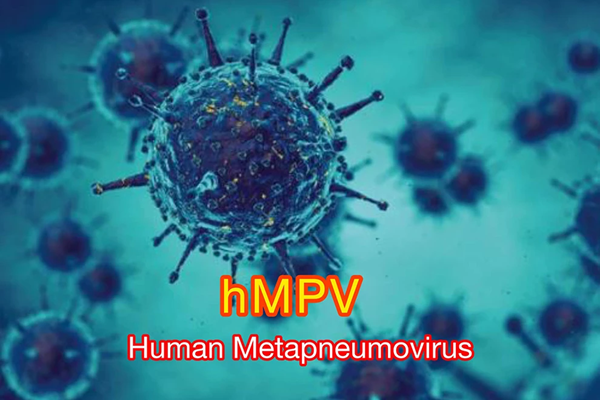
As China faces a surge in respiratory infections, including Human Metapneumovirus (HMPV) and Influenza A, Nigerian health experts are urging vigilance to prevent potential ripple effects, particularly during harmattan, a season associated with respiratory illnesses.
China’s disease control authority has reported an alarming rise in cases, especially among children under the age of 14, sparking global health concerns.
Science Nigeria reports that Chinese health authorities have implemented a pilot system to monitor pneumonia of unknown origin in response to the growing infections.
This system aims to address unknown pathogens more effectively than five years ago, when COVID-19 first emerged.
According to state broadcaster CCTV, the National Disease Control and Prevention Administration will establish protocols for laboratories to report cases and for disease control agencies to verify and manage them. This initiative marks a significant step toward better preparedness for potential health crises.
Recent data from China revealed a significant increase in acute respiratory diseases between December 16 and December 22,2024.
An official from the National Disease Control and Prevention Administration, Dr. Kan Biao noted that respiratory illnesses tend to spike during winter and spring.
Among the detected pathogens, rhinovirus and HMPV are on the rise, with HMPV cases particularly prevalent in children under 14 in northern provinces.
A respiratory expert in Shanghai has cautioned against the blind use of antiviral drugs to combat HMPV, for which no vaccine currently exists. Symptoms of HMPV often resemble those of the common cold, but severe cases can lead to pneumonia or bronchitis.
Meanwhile, social media footage has shown overcrowded hospitals, particularly pediatric facilities, overwhelmed with young patients suffering from severe pneumonia and respiratory complications.
Reports of “white lung” syndrome—reminiscent of severe COVID-19 effects—have also surfaced, raising public concern.
The World Health Organisation (WHO) describes HMPV as a respiratory virus with symptoms similar to the flu or COVID-19.
– Vulnerable Groups: Children under five, the elderly, and immunocompromised individuals.
– Symptoms: Fever, cough, nasal congestion and, in severe cases, bronchitis or pneumonia.
– Prevention: No vaccine or specific antiviral treatment exists, making hygiene and infection control critical.
The WHO has also highlighted other respiratory threats:
– Influenza A: A common cause of flu epidemics that can lead to complications like pneumonia. Prevention includes vaccination and good hygiene.
– Mycoplasma Pneumonia: Known as “walking pneumonia,” it spreads through respiratory droplets and affects individuals with weakened immunity.
Experts have warned Nigerians of the global risks posed by the respiratory illnesses stemming from localised outbreaks in China.
They stress that Nigeria must remain vigilant, particularly during harmattan, a period associated with increased respiratory infections.
Health experts have advised Nigerians to:
– Wear masks in crowded places.
– Wash hands frequently and sanitize surfaces.
– Stay up to date on flu vaccinations.
– Maintain a balanced diet, stay hydrated and avoid smoking.
– Seek medical attention if respiratory symptoms persist.
Meanwhile, stakeholders have emphasised the importance of disease surveillance, early detection of unknown pneumonia cases and public health education.
“Lessons from COVID-19 highlight the need for preparedness to mitigate health crises,” they stated.
By adopting preventive measures and strengthening healthcare capacities, Nigerians can protect themselves from potential outbreaks while learning from global health challenges, such as the current crisis in China.

